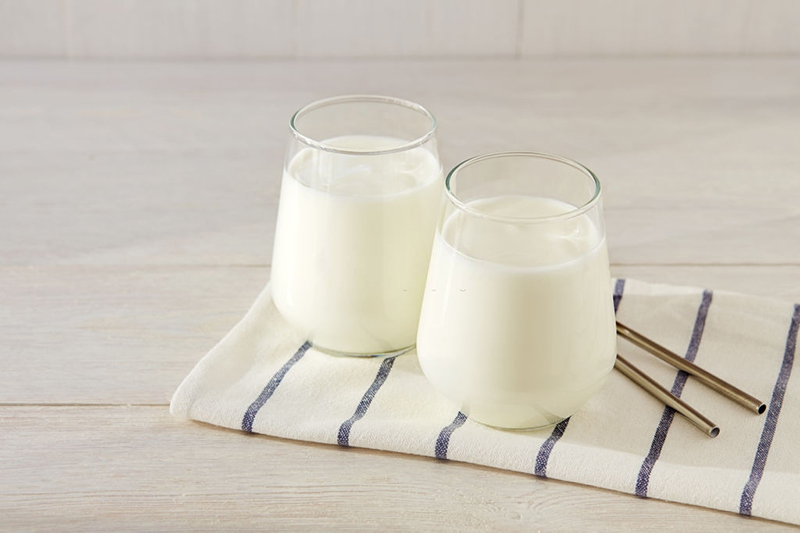You’ve undoubtedly figured out that a little bacteria in your food isn’t always a bad thing by now. Beneficial live microorganisms, such as bacteria known as probiotics, are found in some foods and are produced through the fermentation process. probioticseverything.com3 probiotic food
Probiotic meals have become one of the most popular foods in recent years, according to trend watchers, although they are nothing new.
“Our earliest records of individuals employing fermentation as a method of food preservation date back to 6000 or 7000 BC,” says Gail Cresci, PhD, RD, of Cleveland Clinic’s Pediatric Research Center and Department of Gastroenterology, Pediatric and Lerner Research Institutes.
What’s new: Our passion for probiotic foods and our awareness of how beneficial they may be to our health.
According to Cresci, when researcher Elie Metchnikoff first discovered the good health of Bulgarians who drank soured milk over a century ago, his results were generally rejected as antibiotics became popular. “Probiotics have returned as a result of our newfound understanding of the gut microbiome and how vital bacteria are for human health.” probioticseverything.com3 probiotic food
Supplements vs. Foods With Probiotics
There are a plethora of probiotic supplements available, and it’s undeniably easier to take a pill than to modify your diet.
However, probiotics’ health benefits may be due in part to their interaction with food.
According to Benjamin Wolfe, Ph.D., assistant professor of microbiology at Tufts University, “the benefits people gain from fermented foods come mostly from enhanced digestibility and the nutrients the foods contain.” Fermentation, he claims, increases nutritional value in many cases. probioticseverything.com3 probiotic food
Enzymes, organic acids, and proteins are secreted by bacteria as they chemically modify food, such as turning milk into yogurt. According to Cresci, these chemicals may account for some of probiotics’ possible health advantages. probioticseverything.com3 probiotic food
According to Wolfe, substances like blood-clotting vitamin K are among the metabolites—waste products—produced by the probiotic bacteria during fermentation.
The effects of freeze-dried probiotic microorganisms in a supplement may vary. In addition to their probiotic activity, probiotic foods provide energy to your body while also delivering health advantages.
Another reason to stick with food is that supplement manufacturers are exempt from having to prove that their products are safe and effective.
What Benefits Do Probiotic Foods Have for Your Health?
These microorganisms are credited with a variety of benefits, including improved digestion, increased immunity, and weight loss assistance, among others. However, the assertions may be exaggerated, and more research is required. probioticseverything.com3 probiotic food
Probiotics may help lessen an episode of diarrhea caused by antibiotics, Clostridium difficile (C. diff), a virus, or contaminated food, according to some data. They may also help with irritable bowel syndrome symptoms (IBS). Supplements aren’t always essential; probiotic meals often contain enough beneficial bacteria. So, what probiotic foods should you eat if you want to increase your gut bacteria? probioticseverything.com3 probiotic food
Yogurt
Yogurt is prepared by inoculating milk with friendly bacteria (typically Lactobacillus bulgaricus and Streptococcus thermophilus) and allowing it to rest for many hours at a temperature that allows the bacteria to change lactose, the milk’s natural sugar. This thickens it, giving it the sour, tangy flavor that you anticipate from yogurt. probioticseverything.com3 probiotic food
It’s also why yogurt is a wonderful option for people who can’t consume milk since it makes their stomachs unhappy. Lactose is broken down by the bacteria, so lactose-sensitive persons are less likely to experience bloating, gas, and other digestive problems from yogurt than from milk. probioticseverything.com3 probiotic food
“Essentially, you’re employing bacteria to predigest the meal, which makes it more enjoyable to eat,” Wolfe explains.
Sauerkraut
Sauerkraut is a German name that means “sour cabbage,” but it has been around since the construction of the Great Wall of China, when workmen ate shredded cabbage preserved in rice wine. Bacteria on the surface of the cabbage convert the natural sugars in the vegetable into lactic acid, which inhibits the growth of pathogenic microorganisms. In addition to beneficial bacteria, sauerkraut is high in vitamin C, which protects the immune system. Kimchi, a fermented delicacy common in Korean cuisine, is similar. It’s cooked from cabbage, although it’s usually spicy and includes other ingredients. probioticseverything.com
Tempeh
Tempeh is made by infusing microbial cultures into cooked soybeans, resulting in a dense, chewy cake with a nutty texture that is higher in protein and fiber than tofu and, according to some, simpler to digest.

